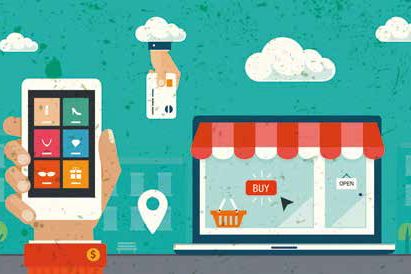Published on the 03/12/2014 | Written by Gerry McGovern

Usability expert Gerry McGovern says we should focus our online efforts on customer convenience and effort, not experience or satisfaction…
You’re out of coffee. You have two choices. Ask your neighbour or drive to the local convenience store. Your neighbour, John, is nice but boy does he love to talk. You drive to the convenience store. We don’t always want to engage. We don’t always want an experience. Sometimes, we just want to get things done as quickly and easily as possible. “Why is usability so often ignored?” Derek du Preez asks in an article for diginomica in June 2014. Derek writes about the problem that thetrainline.com had where there was “a 30 percent drop off between the shopping basket and payment. As a result, thetrainline.com tested the introduction of guest purchasing, where users didn’t require their login details to make their purchase.” By not forcing people to login, thetrainline.com increased its gross margin by more than £1 million per year. Amazon has known for a long time that the further away they pushed the login process the more they sold. If you make it simpler, people buy more. If you make it simpler, people stay with you longer. Reducing hassle increases sales. So, why don’t more organisations get usability? Because they often measure the wrong things. Like satisfaction, engagement, interaction, relationships, loyalty. So much marketing and branding hyperbole. “Feeling overwhelmed, consumers want support – not increased marketing messages or “engagement” – to more quickly and easily navigate the purchase process,” Corporate Executive Board (CEB) stated in a study it published in 2012. “Brands that help consumers simplify the purchase journey have customers who are 86 percent more likely to purchase their products and 115 percent more likely to recommend their brand to others.” In a study of 7000 consumers, CEB found that only 20 percent want a relationship with a brand. In a study by Havas Media in 2013, over 90 percent of Western consumers said they wouldn’t care if most brands disappeared. Brands and marketing has a hugely inflated view of how important they are in the lives of customers. It’s time to get real. “Our research indicates that the impact of simplifying purchase decisions for consumers is four times stronger than the favoured marketing strategy of engagement and is the number one driver of likelihood to buy,” said Patrick Spenner, managing director at CEB. CEB has even produced a book on the topic, called The Effortless Experience. In it the authors state: “Customers want ease. Getting back to their busy lives quickly matters more than anything. The greatest driver of disloyalty is the amount of effort you require your customers to put into their service experience. Customer effort includes repeated contact, repeating information, channel switching (e.g. starting online and ending up on the phone), transfers, policies and procedures, and the general hassle factor that most service interactions create.” In 2013, The Temkin Group found that IT professionals were 55 percent more likely to buy from tech vendors who made life very easy for them. Only four percent said they planned buying from vendors who were very difficult to deal with. Today, time is more valuable than a Rolex watch. To save time in a hassle-free way is the best gift you can give the busy, stressed customer. Focus on increasing convenience for customers. Seek to reduce the effort they have to make to do business with you. Gerry McGovern is an expert in customer-centric technology, CEO of Customer Carewords and a five-time published author. He helps large organisations become more customer centric on the web. His clients include Microsoft, Cisco, VMware, IBM, Atlas Copco and Tetra Pak.






































